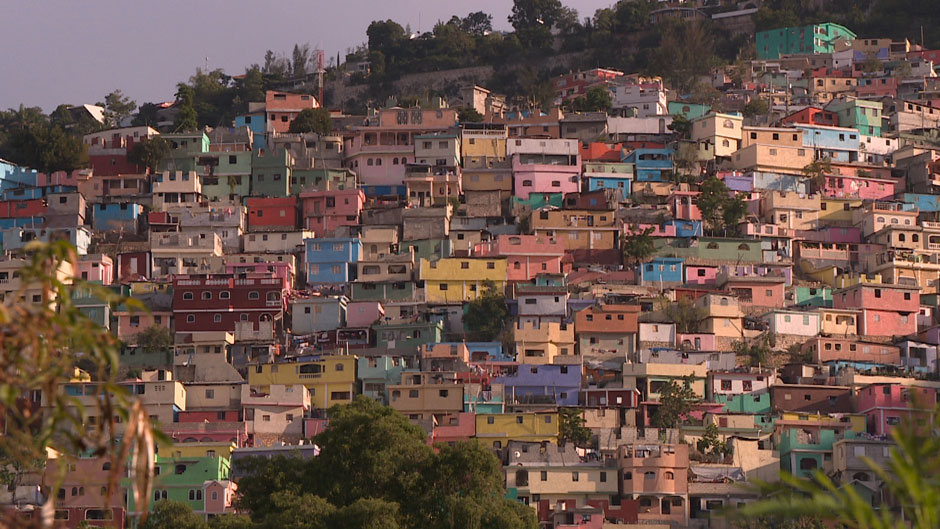For the last two weeks thousands of Haitians have taken to the streets, asking for U.S.-backed President Jovenel Moïse and his government to resign.
This was the latest in a series of demonstrations that started over a 40 percent hike in fuel prices in July, and double-digit inflation that has made day-to-day survival extremely challenging for more than 60 percent of the population.
For outsiders (and for most of the international media), the disruption that resulted from this event is yet another instance of unruly Haitians who cannot define their lives within a framework of law and order. Yet, the subsequent repression against demonstrators killed at least nine people and injured dozens more, while the country remains paralyzed and the economic situation worsen by the day.
This economic situation is a symptom of a deeper pathology that has crippled the country’s basic institutions and its ability to provide a path for human security and development.
The overall sociopolitical economic structure of Haiti is one of deep fragmentation between a small elite composed of a few families and a large poor population with a marginal urban middle class.
It has emerged out of deeply rooted and unresolved historical dichotomies. The fragility of Haiti’s social contract is due to this fundamental conflict between these two intertwined geographically-based social worlds: rural-based peasants and urban slum dwellers, and the urban-based commercial traders.
The powerful families behind this sociopolitical order (firmly backed by the United States) largely benefit from the status quo and poor governance of the country and have no incentive for real change in the country, even when the opportunity is offered.
An opportunity for Haiti to escape the grip of the traditional multilateral institutions emerged when, in 2006, Venezuela, home of the world’s largest oil reserves, offered Haiti the capital needed for investment in infrastructure development, education, agriculture, health and entrepreneurship.
Along with 17 other Caribbean countries, Haiti benefited from what has been called the Petrocaribe deal, under which Venezuela provided cheap oil on favorable credit terms.
Haiti has 25 years to pay back the debt at 1 percent interest. The total amount of this loan exceeds $4 billion, money spent between 2009 and 2017, mostly under the presidency of Michel Martelly, the mentor of the current president. However, according to official reports in Haiti, more than $2.3 billion was not accounted for by the politicians and their allied ruling families.
Opportunity arose again through the tragedy of the January 2010 earthquake, when the international community, under the leadership of the United States, pledged $15 billion to help rebuild Haiti’s infrastructure and institutions.
Despite a massive inflow of international support for “Building Back Better” following the deadly 2010 earthquake and the presence of the United Nations Stabilization Mission in Haiti (MINUSTAH), key reforms have repeatedly stalled, and the impact from investments has not been commensurate with expectations. Haitian institutions are weaker and still deliver very limited services.
Today, according to the World Food Program, Haiti ranks 168th of the 189 countries on the 2018 Human Development Index, with the highest levels of chronic food insecurity in the world.
Accordingly, “between March and June 2019, it is projected that 2.6 million people will be acutely food insecure, including 571,000 in a food emergency.” On the 2017 Climate Risk Index, Haiti is third among the countries most affected by extreme weather events.
Despite these alarming facts, Haiti’s fractured elites continued to be backed by Washington, Paris, and Ottawa, who apparently hope to magically obtain different results using the same rituals.
Powerful vested interests maintain the country in a low equilibrium, in which its dysfunctional institutions are maintained so that they can draw dividends.
The powerful families that control Haiti’s productive sectors expand their wealth by having key government decision-makers on their payroll. These families, while competing against each other, are also fighting against a bigger threat, which is the possibility of a modernization of Haitian society, investment, and social transformation.
This is a game in which nobody wants Haiti to bleed to death or see Haiti disappear.
Instead, actors exert effort to maintain a perverse equilibrium, whereby the key sectors of the country are controlled by these families through the government with dividends to politicians at local and national levels. Meanwhile, the price of maintaining the equilibrium is paid by the public treasury or by grants from the international community—and of course in social costs of violent upheaval and the misery of Haiti’s poor majority.
Nonetheless, pathways toward a sovereign future are still possible to imagine and implement.
Haitians need to take back their country through grassroots initiatives that actively address the exclusion of the majority and break with the neocolonial principles that keep the majority of the country's population trapped in poverty.
Inclusive programs could be designed by Haitian themselves that address human sustainable development through investments in education and entrepreneurship, as well as robust political institutions built on principles of good governance, justice, and the rule of law.
Unlike the current path, which demands deep sacrifices from the population with no corresponding reward, a truly sovereign vision for Haiti would lay the ground work for economic security and social stability for all Haitians.
It requires sacrifices that will make being Haitian and having contributed to humanity worthwhile living.
Louis Herns Marcelin is associate professor in the Department of Anthropology in the College of Arts and Sciences. In 2007, he founded Haiti’s Interuniversity Institute for Research and Development, or INURED.

